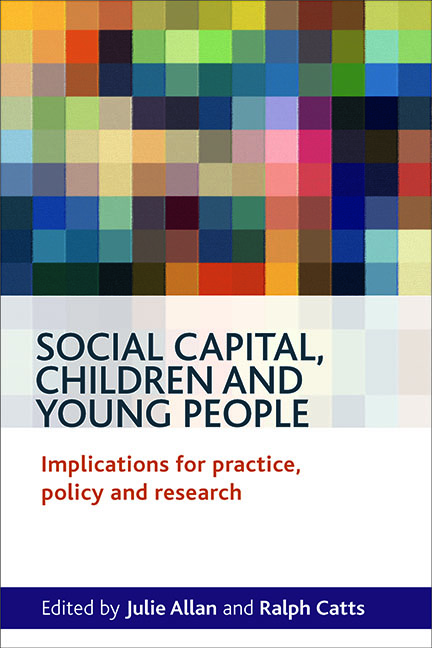seven - Social capital transitions of ‘Get Ready For Work’ trainees
Published online by Cambridge University Press: 01 September 2022
Summary
Introduction and context of the case study
This chapter presents findings from a case study of six young people in Glasgow, Scotland, who enrolled on a course designed to help them move into employment, further education or training (EET). When this study was carried out in 2007/2008, the ‘Get Ready for Work’ (GRfW) programme was viewed as an important contributor to the Scottish Government's commitment to social justice (Scottish Executive, 2006). Until its inception, most previous policy interventions had an employability focus and did not specifically address the various risk factors that make positive outcomes hard to achieve (York Consulting Ltd, 2005). The young people targeted are those who face multiple barriers related to economic disadvantage and educational disaffection, such as poor physical and mental health and low attainment (Raffe, 2003; Thomas et al, 2008).
Access to social capital is likely to be particularly important for these young people, helping them to overcome or become more resilient to the problems they face. Social capital has been described as the best predictor, after poverty, of children's welfare. Families with high social capital are more likely to have children who have good mental and physical health, educational attainment and subsequent employment (Ferguson, 2006). However, an inward-looking tendency is said to characterise people who live in deprived areas (Atkinson and Kintrea, 2004). Therefore, bonding social capital on its own may intensify a sense of ‘us and them’ and limit opportunities to develop bridging and linking social capital.
The authors were aware, from their discussions with staff at the centre prior to the course, that people in the local area lacked confidence and tended not to venture too far from home. Safety, as an important constituent of community social capital, was a particular concern. In the most disadvantaged areas of Glasgow, the presence of male gangs who perpetrate violent acts defines territories and boundaries that must not be crossed (Kintrea and Suzuki, 2008).
- Type
- Chapter
- Information
- Social Capital, Children and Young PeopleImplications for Practice, Policy and Research, pp. 115 - 136Publisher: Bristol University PressPrint publication year: 2012



